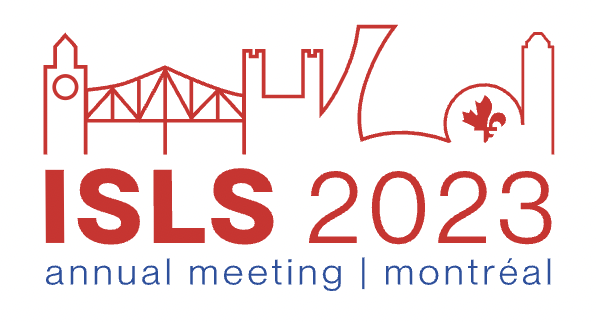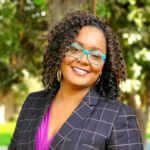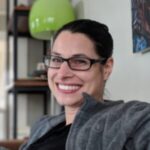Members of the CoRE team will be presenting multiple papers at this year’s International Conference of the Learning Sciences. This year’s presentations also demonstrate the span of our collaborations, including colleagues from NYU, Columbia Teacher’s College, MIT, and the University of Buffalo:
Vogelstein, L., McBride, C., Ma, J., Wilkerson, M. H., Vogel, S., Barrales, W., Ascenzi-Moreno, L., Hoadley, C., & Gutierrez, K. (2023). Storytelling “in theory”: Re-imagining computational literacies through the lenses of syncretism and translanguaging. Full paper to appear in Proceedings of the 2023 Annual Meeting of the International Society for the Learning Sciences (ISLS ’23), June 10-15. ISLS: Montréal, QC, Canada.
Abstract. This inquiry is guided by a curiosity around the stories that teachers tell about their students, their content, and their pedagogical approaches focused on data literacies and computational literacies. In this paper we present a form of storytelling with theory as we apply theories of syncretism and translanguaging to empirical vignettes about teachers’ sensemaking. In addition, we present a form of storytelling of theory, leveraging teachers’ stories as a way of helping us better understand how these theories are related to each other. To do this, we bring into conversation two teachers’ stories: one from the Writing Data Stories (WDS) project and the other from the Participating in Literacies and Computer Science (PiLA-CS) project. Both projects leveraged translanguaging and syncretism in their conceptions and designs, working with teachers to design for expansive forms of data-based and computational literacies.
Wagh, A., Rosenbaum, L., Fuhrmann, T., Bumbacher, E., Blikstein, P., & Wilkerson, M. H. (2023). Investigating the role of the teacher in supporting computational modeling in science classrooms. To appear in Proceedings of the 2023 Annual Meeting of the International Society for the Learning Sciences (ISLS ’23), June 10-15. ISLS: Montréal, QC, Canada.
Abstract. Even though the medium of computational modeling presents unique opportunities and challenges for learning, little research has examined how teachers can support students in computational modeling. To address this gap we investigate an experienced 6th grade science teacher’s epistemic moves as she guides her students through programming computational models for science learning. We also examine whether and how these moves inform students’ work. Using interaction analysis of whole-class videos, student artifacts, and interviews, we identify three epistemic moves: 1. preparing students to program their paper models into computational agent-based models; 2. explicitly linking student ideas with the code and simulation; and, 3. using data to support or refute theories. We briefly describe how these moves informed student work. Finally, we discuss the pedagogical value of these moves and suggest them as exemplary practices for supporting students’ computational modeling.
Fuhrmann, T., Wagh, A., Rosenbaum, L., Eloy, A., Wilkerson, M. H., & Blikstein, P. (2023). Computational modeling makes students’ thinking visible and shifts it toward scientifically accurate explanations. To appear in Proceedings of the 2023 Annual Meeting of the International Society for the Learning Sciences (ISLS ’23), June 10-15. ISLS: Montréal, QC, Canada.
Abstract. This paper investigates how an integrated computational modeling and data
environment enabled students to express their ideas and shift them toward canonical
explanations of diffusion. Based on an 8-day unit with two 6th-grade science classes, we apply interaction analysis to students’ utterances, drawings, presentations, and code to examine students’ diverse ideas about diffusion and how those ideas shifted toward canonical forms. We present three case studies to illustrate how block libraries that support expressing a range of ideas and consistent access to video data within the modeling environment enabled students to articulate their initial non-canonical ideas about diffusion and how these ideas shifted over time. The paper proposes means by which computational modeling tools and curricula can illuminate students’ diverse ideas and shift them toward canonical, scientifically accurate explanations.


